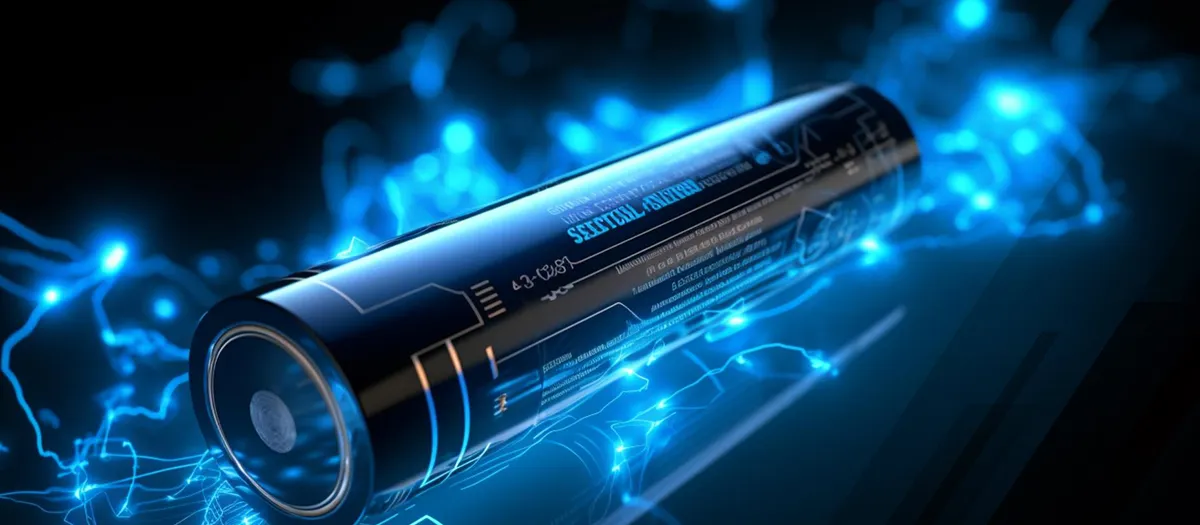In the realm of electronics, batteries play a central role in powering various types of gadgets. From keeping our smartphones and laptops alive to fueling electric vehicles, battery technology has provided us with portable and reliable energy storage solutions. In this blog, we will explore all you need to know about batteries, including their functionality, and learn how advances in this field are changing our quality of life.
What is Battery Technology?
Battery technology refers to the various methods and technologies used to store and release electrical energy. Batteries are essential for powering a wide range of devices, from smartphones and laptops to electric vehicles and renewable energy storage systems. Over the years, technology in batteries has evolved and improved, leading to the development of different types of batteries with varying characteristics and capabilities. As the battery technology market is expanding rapidly, Kings Research predicts that this market is expected to generate $153.86 Billion by 2030.
What is the Working Principle of a Battery?
The battery works on the principle of converting chemical energy into electrical energy. It consists of an anode (positive electrode) and a cathode (negative electrode) with an electrolyte between the two electrodes. When a battery is connected to a circuit, a chemical reaction occurs at each electrode.
At the anode, a reaction takes place that releases electrons, while at the cathode, a reaction occurs that consumes electrons. During discharge, electrons flow from the anode to the cathode through the external circuit, creating an electric current that powers electronic devices.
Which Battery Technology is Best?
Lithium-ion batteries are considered the best as they offer a high energy density, allowing for more power to be stored in a compact size. Their low self-discharge rate means they can retain their charge for longer periods when not in use.
Additionally, lithium-ion batteries have a longer lifespan compared to other battery types, making them more cost-effective in the long run. They also have a high charge/discharge efficiency, which enables quick charging and discharging. Notably, lithium-ion batteries are environmentally friendly, as they do not contain toxic materials like lead or mercury. After the Lithium-ion battery, the sodium battery technology is considered the second-best technology in batteries.
The Battery Technology That Set the Fastest EV Charging Record
Israel's StoreDot and Sweden's Polestar have created a 10-minute electrical vehicle (EV) charging record by fitting StoreDot's extremely fast-charging (XFC) battery technology into the Polestar 5 prototype. The battery was topped up from 10% to 80% in record time, potentially addressing range anxiety for existing and future EV owners.
StoreDot's XFC battery cells can add 200 miles in under 10 minutes, revolutionizing the EV experience by eradicating the barrier of range and charging anxiety. The innovation showcases how new EV battery technology can be easily integrated into existing car models, enabling extremely fast charging using the available charging infrastructure. The XFC has now become a necessary standard for vast EV adoption.
Is the Lithium-Air Battery the Next Generation of Lithium-Ion Batteries?
The Illinois Institute of Technology (IIT) and the U.S. Department of Energy's Argonne National Laboratory have developed a lithium-air battery that could power electric cars for over a thousand miles on a single charge. The new battery technology uses a solid electrolyte instead of a liquid variety, which is safer than lithium-ion batteries.
The highest projected energy density of a lithium-air battery is a key factor that is considered for the next generation of batteries beyond lithium-ion. This characteristic has the potential to boost the energy density by up to four times, resulting in a longer driving range. With further development, the new design is expected to reach a record energy density of 1200 watt-hours per kilogram, nearly four times better than lithium-ion batteries.
Are Sodium-Ion Batteries a Greener Solution for EVs?
Sodium-ion batteries are being explored as a greener alternative to lithium-ion batteries and have gained significant attention due to environmental concerns over lithium mining and shipping. Sodium is more abundant than lithium, which could potentially contribute to reducing supply chains and lowering battery costs.
However, sodium-ion batteries have a lower energy density than lithium-ion batteries, which affects the driving range of electric vehicles and the overall environmental impact. The recently launched sodium-ion-powered products show the ability to accelerate development, once data from real-world situations is analyzed. It is expected that these innovative sodium-ion batteries will work as well as lithium-ion ones in less than 10 years.
Can Batteries be Recycled?
Yes, because they contain heavy metals and toxic chemicals that can contaminate soil and water if not properly disposed of. The recycling process strives to reduce the number of batteries being disposed of. The recycling of batteries, particularly lithium-ion ones, has gained major traction in recent years.
For example, Redwood Materials has recovered more than 95% of these metals from old lithium-ion packs in a pilot plant. Similarly, Tesla adopted a closed-loop process to recycle its batteries. In its 2020 impact report, Tesla stated that none of its scrapped lithium-ion batteries go to landfills, and 100% of them are recycled in some way.
Additionally, the American Battery Technology Company (ABTC) has developed a novel in-house recycling process to promote battery recycling. The process helps to separate and recover critical materials from end-of-life batteries, purifying them to higher quality specifications than conventional materials. This process uses a strategic de-manufacturing approach to achieve higher material recovery rates and capture battery-grade materials without compromising quality. The process also offers competitive throughput, low capital costs, and short processing residence times.
In a Nutshell
Battery technology has revolutionized the way we power our devices and vehicles. From advancements in lithium-ion batteries to the promising potential of solid-state batteries, this field has witnessed remarkable progress. The continuous innovations have increased battery capacity and efficiency and also contributed to the growth of renewable energy sources. As the recycling of batteries approaches, we can expect a more sustainable and greener future for this technology.




